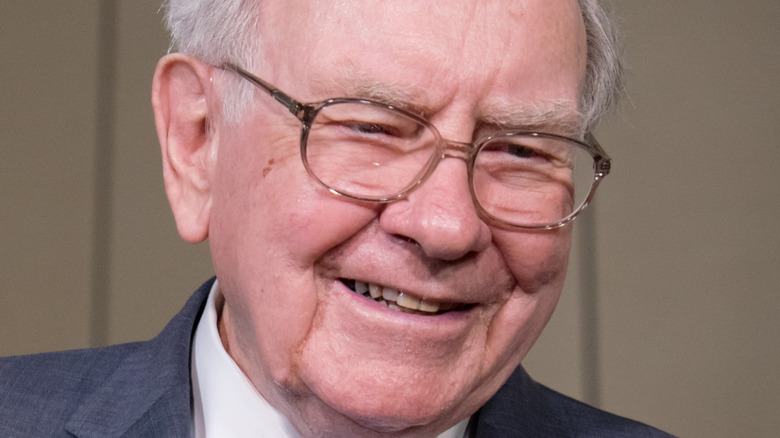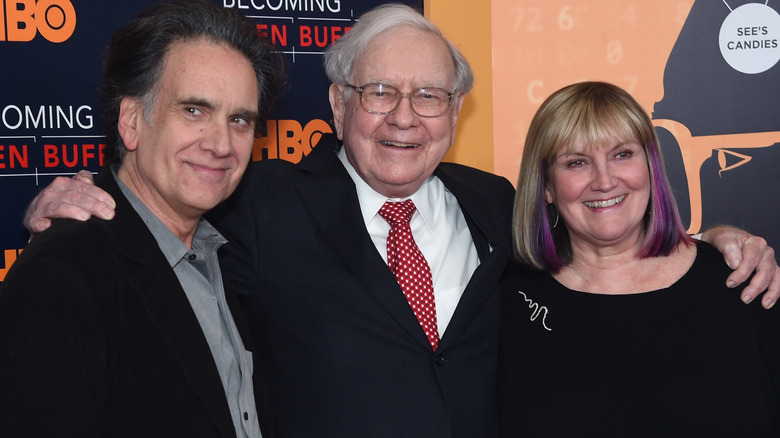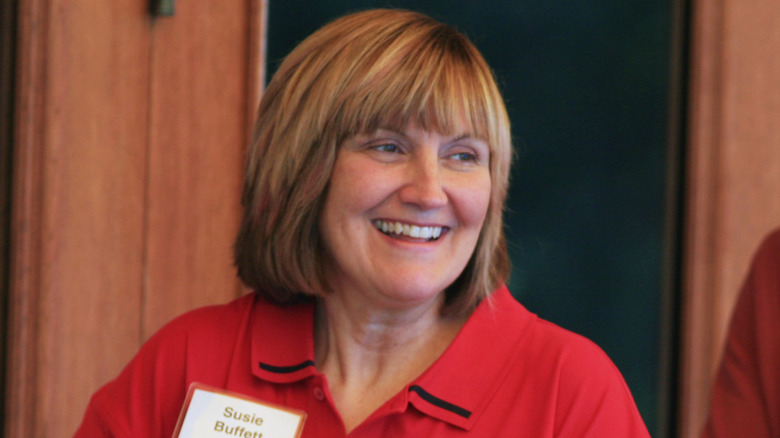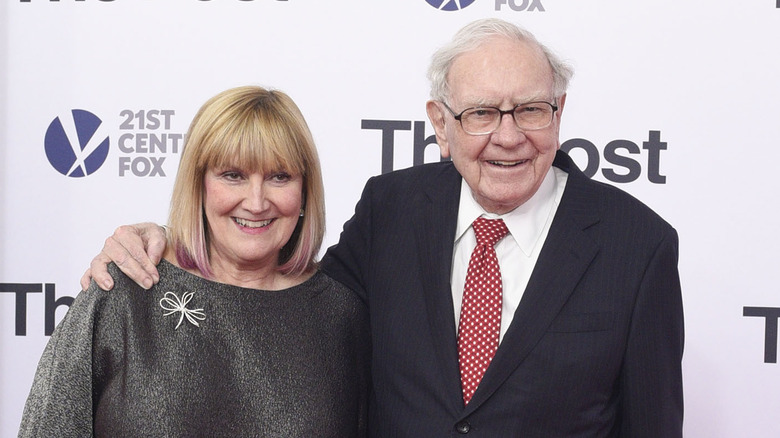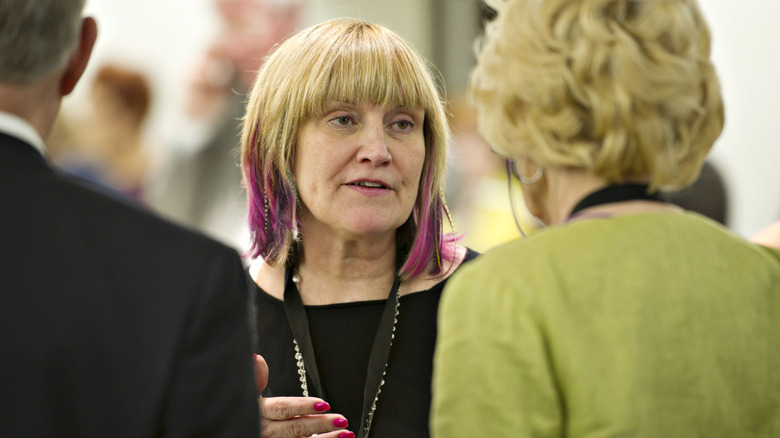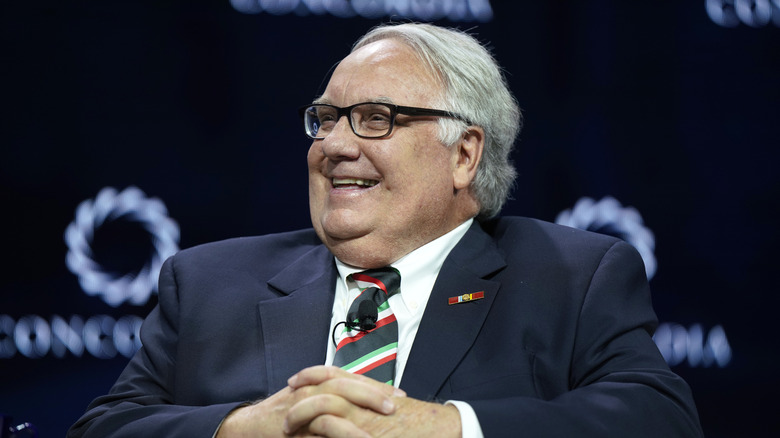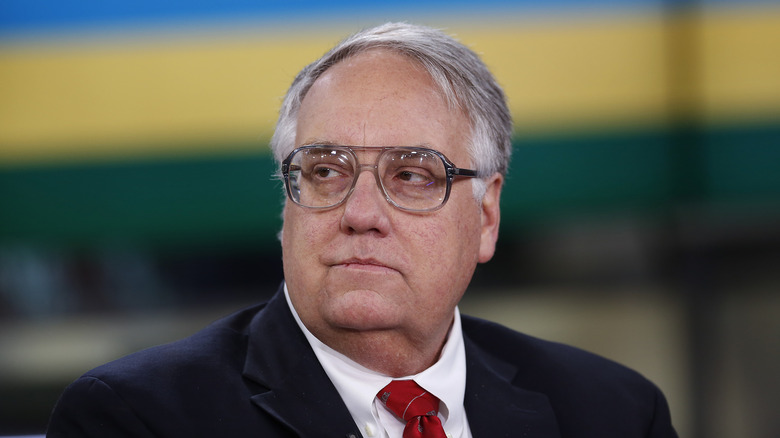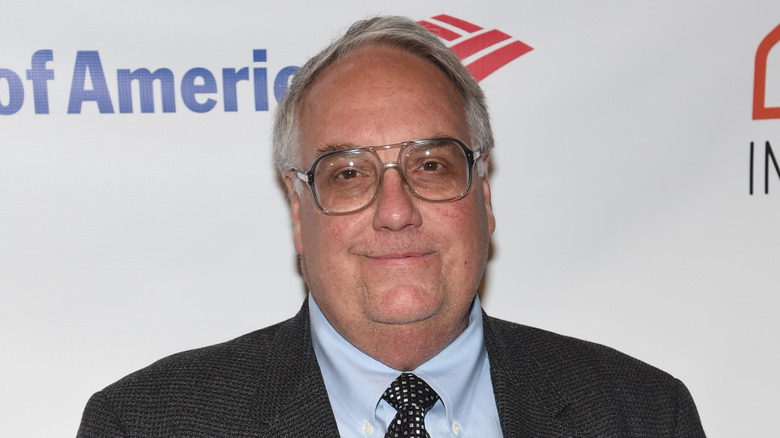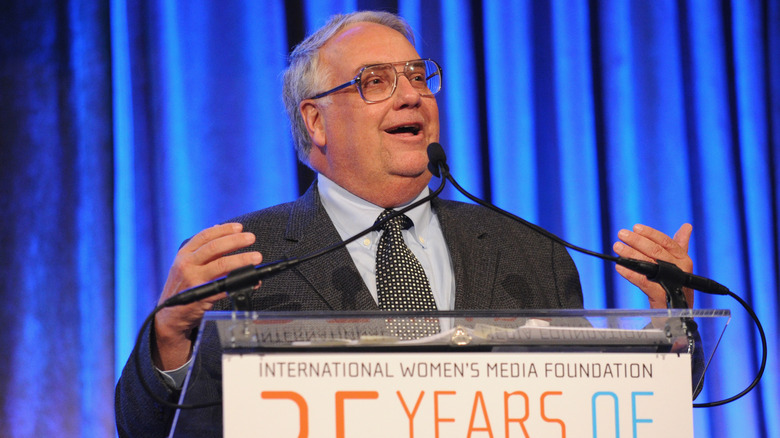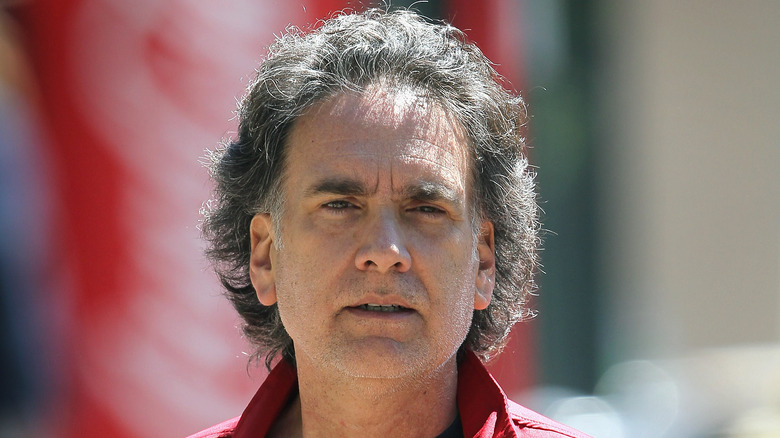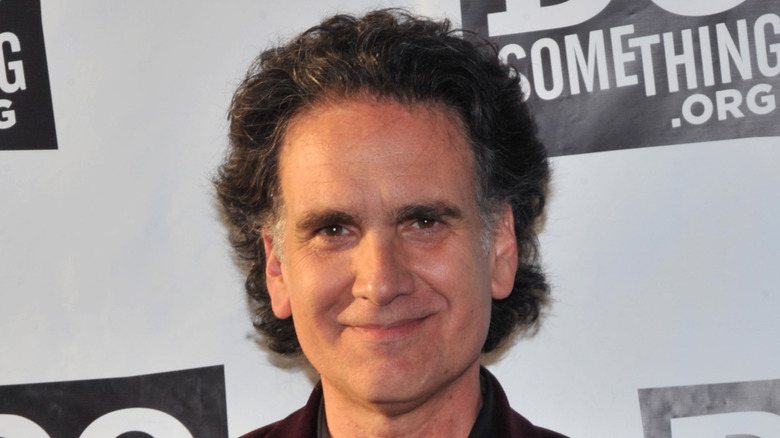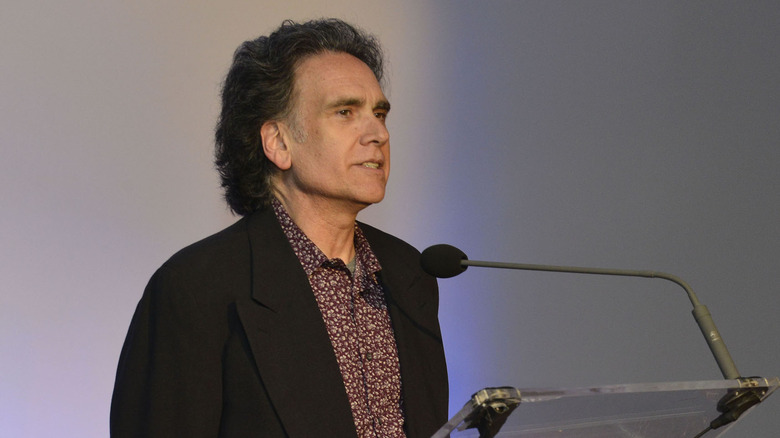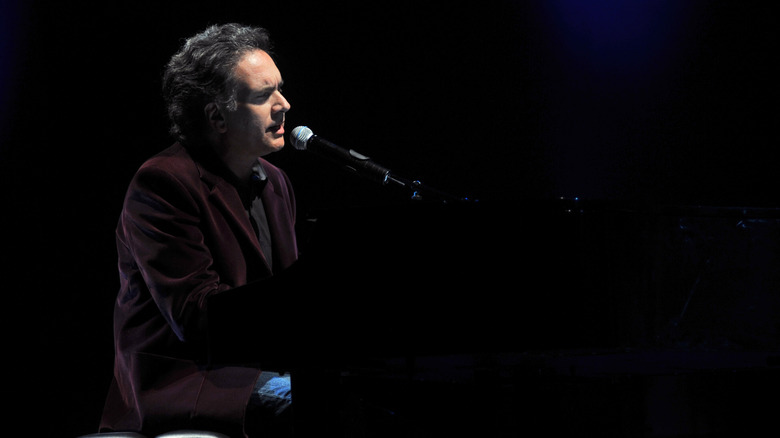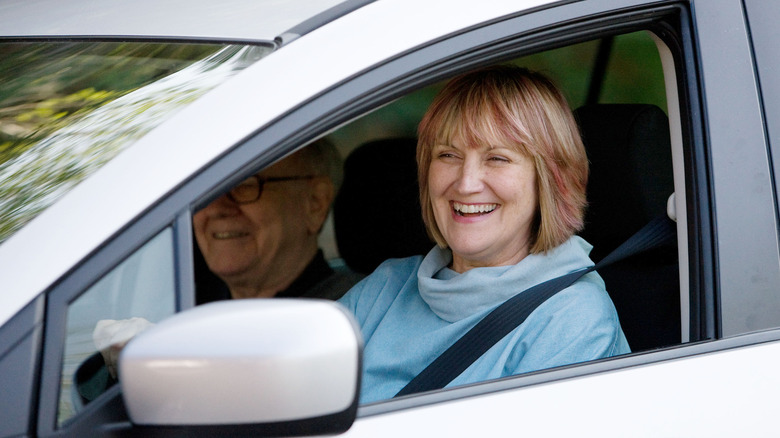The Truth About Warren Buffett's Children
We may receive a commission on purchases made from links.
While we're pretty sure the upsides far (like, far, far) outweigh the down, it's gotta be at least a little weird growing up as the child of one of the wealthiest people on the planet, right? You can't tell us it's possible to grow up totally normal if your dad has enough money to buy a medium-sized country. In an effort to confirm this hypothesis, we decided to take a deeper look into the lives and personalities of noted rich guy Warren Buffett's three children, Susie, Howard, and Peter. What we uncovered was some of what we expected (at the time of this writing, they are, indeed, all rich) and some things that were almost shocking (some of them were at one point not rich).
With an estimated net worth of $105 billion, Buffett made headlines when he declared that he would not leave his vast wealth to his children, choosing instead to teach them the real value of the dollar. And if anyone knows about dollars and values, it's the world-famous investor. Let's see how he did, shall we? This is the untold truth about Warren Buffett's children.
Inside Warren Buffett's parenting style
In addition to his stock market savvy, Warren Buffett is never short on pearls of parenting wisdom, especially for parents with a boatload of cash like himself. One of the billionaire's golden rules is to resist the impulse to give your kids everything just because you can. "You should leave your children enough so they can do anything, but not enough so they can do nothing," he said in one famous interview with Fortune (via Go Banking Rates). He also said, "My kids are going to carve out their own place in this world, and they know I'm for them whatever they want to do."
While speaking with The New York Times in 2006, Buffett's three kids made it clear that they always knew they weren't going to get a lot of inheritance from their dad, and Susie Buffett (pictured above with Peter and Warren Buffett) revealed that they lived a pretty standard childhood, all things considered. While Buffett has said that he never forced his kids to do anything they didn't want to do, which turned out to include college — as the trio wound up dropping out prior to graduation — his children understood his expectations concerning inherited wealth.
"It was always clear we were not going to get a lot of money," Howard Buffett told the outlet. "If my dad said, 'either you can have $50 million a year personally or $50 million a year for the foundation,' I'd put it in the foundation. What would you do with $50 million if you didn't give it away?"
Susie Buffett didn't realize she was rich
The oldest of the three Buffett siblings, Susan Alice (nicknamed Susie), has often talked about her totally regular childhood — and in fact, has said she didn't actually know her father had amassed a large fortune until she was an adult herself. "We did not grow up with Warren being No. 2 on the list [of richest Americans]," she told The New York Times. "We grew up in a normal situation."
In an interview with Business Insider, Susie explained, "I didn't really have any idea about any money until I was long out of high school and out of Omaha." She said she first realized her dad was more than a little wealthy when she read about him in the newspaper. "There was an article in the Wall Street Journal at one point when I was probably about 22 or 23, I'd say. That was the first time I was like, 'Oh, there's more going on than I knew about!'"
She also explained that since her father's wealth and fame came later, she and her brothers grew up in an "upper-middle-class neighborhood," but nothing out of the ordinary. Her dad "went to the office every day" and then headed home for dinner at night, just like most other people.
Warren Buffett's eldest child's role model was her mom
Susie Buffett's most famous parent may be her father, Warren Buffett, but that doesn't mean he's the parent who has had the greatest influence on her. As a matter of fact, Susie has said in interviews that her role model growing up was her mom, Susan, after whom she's named.
"Everyone in North Omaha knew my mother," Susie told Barron's Penta in 2018. "She was not the type to just write a check and then go off to the symphony. She was in the community working, and she would take me along. She told me once — I think I was about 10 years old — that if she didn't have children, she would have been marching down in Selma for civil rights." Susie told the outlet that while both her parents cared deeply "about equal rights for everyone," it was her mother who "was the one ... out there" on the ground.
Sadly, Warren Buffett's wife, Susan, died following a stroke in 2004, but it's clear that her legacy lives on in her daughter and other children.
Susie Buffett's philanthropy focuses on children
Like the rest of the Buffett family, Susie Buffett is known for her philanthropic efforts. Each of Warren Buffett's three kids has a particular cause that's especially dear to their hearts, and for the eldest, it's all about education, families, and social justice. Her organization, The Sherwood Foundation, previously named the Susan A. Buffett Foundation, has a simple mission statement: "The Sherwood Foundation promotes equity through social justice initiatives enhancing the quality of life in Nebraska." According to the website, the foundation "has strongly held values regarding civil liberties, equality and fairness with a particular focus on women and people oppressed because of their race, sexual orientation, and/or religion or lack-thereof."
Some of Susie's most notable contributions have been toward Omaha's public schools, where she's donated to over 550 school programs, per a 2020 Los Angeles Times article. Meanwhile, a writeup in Inside Philanthropy highlights Susie's Buffett Early Childhood Fund, which supports pre-K programs for underprivileged children and communities with fewer resources, and how the fund works with other philanthropic partners.
According to The Times, The Sherwood Foundation alone has donated $1.3 billion to other Nebraska-based charities over the course of 20 years.
Warren Buffett's middle child is the lone republican
If there's one thing that makes middle child Howard Graham Buffett stand out from the rest of his family, it's probably his politics. In addition to being the only one of Warren Buffett's three kids to actually go into politics as a career, he is also the only one who is a republican. "They're all liberal," he told The New York Times back in 2006, apparently while rolling his eyes.
In addition to voting GOP at the ballot box, Howard has taken a more hands-on approach to government and been elected to local office himself. After volunteering at Illinois' Macon County Sheriff's office for many years, according to the Chicago Tribune, the billionaire's son was elected to the position himself in 2017. After his term ended in 2018, the paper reported that Howard chose to stay in the state. He had announced plans to run for Macon County sheriff again in 2022, but suspended his campaign soon after announcing his run, as a quirk in local law put it into question whether he was eligible for the spot at all, per a local NBC News station.
It was all seemingly with good intentions, however. As proud dad Warren told the Chicago Tribune, "[Howard] connects with people and he sympathizes with people who have not been as lucky in life." He added, "He has his mother's genes ... he really sees every person as a human being. It's not an act with him at all. He's always been that way."
Howard Buffett's foundation has come under scrutiny
Like most of the Buffett children, Howard Buffett enjoys a relatively favorable reputation among the general public. But that doesn't mean he hasn't weathered some tough scrutiny and controversy in his day. Specifically, a 2019 investigative journalism piece in the Phoenix New Times uncovered the potentially troubling way Howard had been spending his fortune near the U.S.-Mexican border.
The paper alleged that Howard had been using his wealth to fund a personal "border war in Cochise County Arizona," spending millions on equipment and training centers and more or less buying off the Cochise County Sheriff's office: "To date, Buffett has given nearly $30 million in gifts to CCSO and related entities. The money has arguably been used to militarize and steer the rural sheriff's office into Buffett's own border-enforcement agenda." For his part, Howard has explained this patronage by stating that because the border patrol will not accept private support, it limits their ability to "increase force multipliers." He also said that his monetary support is trying to "go around that" and "work through the Sheriff's Department, and make them the CCSO assets and have the Border Patrol work with us."
Fox News later connected this report to Howard's 2018 book, "Our 50-State Border Crisis: How the Mexican Border Fuels the Drug Epidemic Across America," noting his belief that one way to increase border security is through a "properly equipped law enforcement." However, as of this writing, there have been no other updates on these claims, and the truth surrounding this situation remains unclear.
Environmentalism is Howard Buffett's cause
Each of Warren Buffett's three children are well-known as philanthropists, and each has a specific cause that's most important to them. For Howard Buffett, it's the environment and conservation. And, as a farmer himself, Howard clearly takes a pretty hands-on approach to agriculture and his relationship to the land.
A profile of Howard in The Atlantic states that he first became involved in finding solutions to end world hunger through his conservation work in Africa, where he supported efforts to protect endangered animals and published books of his own wildlife photos. "It's an overwhelming issue," Howard admitted of world hunger. "If someone says, 'You can't make a dent in it,' I'd say, 'Well, you're probably right. It is pretty overwhelming.' But how do you know if you don't try?"
His organization, The Howard G. Buffett Foundation, has poured money into charities that support innovative agricultural solutions all over the world, and specifically on the continent of Africa, where Howard has apparently visited every country. The Atlantic article noted that Howard stands out for his willingness to stick it out in areas that other people might view as too corrupt or dangerous. "You shouldn't go into South Sudan unless you're willing to take a risk. You should expect disruption. That's part of the decision," he said.
Howard Buffett has authored eight books
In between shifts at the sheriff's office and trips to Africa, Howard Buffett has also found the time to write eight books. That's right. Eight. "There's no consistency," Howard quipped to The Wall Street Journal of his professional endeavors in 2019. That may be so, but there's definitely a running theme.
His bio on the official website for The Howard G. Buffett Foundation notes that, in addition to having traveled to over 150 countries, Howard has authored these eight books about "conservation, wildlife, and the human condition." Two of these them have even become New York Times bestsellers: "40 Chances: Finding Hope in a Hungry World" and "Our 50-State Border Crisis: How the Mexican Border Fuels the Drug Epidemic Across America." The latter includes a forward written by Cindy McCain and was deemed by Kirkus Reviews, "A sort-of-liberal, sort-of-conservative argument for a secure southern border."
Howard's other books include collections of his own photography, such as "Tapestry of Life" and "Threatened Kingdom," as well as "FRAGILE: The Human Condition." We definitely can't fault Warren Buffett's middle child for the passion he holds for his subject.
Peter Buffett has had his own financial problems
You might think that having a billionaire for a father would mean that you're financially pretty set for life — and you'd mostly be correct, FYI. Still, Warren Buffett's youngest child, musician Peter Buffett, has acknowledged that he has had money problems in the past. In an interview with NPR, Peter explained that his parents' support "didn't come in the form of a check." Rather, Peter noted, "It came in the form of love and nurturing and respect for us finding our way, falling down, figuring out how to get up ourselves" — and a $90,000 stock inheritance at the age of 19.
Instead of leaving the $90,000 in Berkshire Hathaway stock, where it would be worth over $200 million these days, according to CNBC, Peter sold the stock and bought recording equipment. This led to some financial hiccups along the road, including "double mortgages" and having to "raise money for shows" on his own, NPR noted. He even asked his dad for a loan at one point in his 20s. But perhaps unsurprisingly, Warren's answer was a resounding no.
Luckily, Peter has made peace with these early financial decisions. "I don't regret it for a second," he wrote in his 2010 memoir, "Life Is What You Make It" (via CNBC). "I used my nest egg to buy something infinitely more valuable than money: I used it to buy time."
Warren Buffett's youngest son may have bought a town
Peter Buffett may have struggled financially once or twice as a young man, but that's clearly not the case anymore. Exhibit A: That time his foundation basically bought a town in upstate New York. This isn't quite like "Schitt's Creek," if that's what you're thinking. What actually happened is that Peter's nonprofit, the NoVo Foundation, has been buying up property in Kingston, New York and rebuilding the town kind of all on its own.
An article in Tablet Magazine laying out how this came to be explained that NoVo had already spent, at a minimum, $160 million on the town by 2021, and is the primary funder of the town's news station, a food co-op, a museum, a think tank, the YMCA, and even its own local currency. It's kind of like Disney World, basically. And it appears the townspeople themselves have mixed feelings about this.
A Medium piece about NoVo and the little town of Kingston notes that in order to pour all this cash into one place, NoVo had to turn away from its earlier projects — namely, its support of women and girls. This also left some people not only perturbed, but concerned about how quickly an organization like NoVo can potentially change direction. Still, as Peter told Medium, "Girls and women will always be central to our work."
Peter Buffett has criticized charitable giving
The thing about charitable giving is that it's not always strictly a good thing. No, seriously. And despite the family's reputation for philanthropy, Peter Buffett has had some interesting and critical things to say about when charitable giving goes wrong — namely, when he wrote a headline-making op-ed for The New York Times about what he called "the charitable industrial complex."
In the 2013 article, which went viral (in certain circles, at least), Peter wrote, "Early on in our philanthropic journey, my wife and I became aware of something I started to call Philanthropic Colonialism. I noticed that a donor had the urge to 'save the day' in some fashion." Oh dang. He's not wrong, though, and this kind of charity has been described as "white saviorism" before.
The article sparked a ton of debate on the internet, between those who were pleasantly shocked by the son of a billionaire's critique of capitalism and inequality, and those who thought he was giving capitalism a bad rap. One radio host said, "It was a case that would have been provocative no matter who made it — but the fact that Peter is Warren Buffett's son made it a bit more deliciously subversive." Meanwhile, an op-ed in Forbes insisted that Peter's essay was too hard on both philanthropy and capitalism.
But Peter Buffett's real passion is music
If we were to give Peter Buffett just one job title, we wouldn't say he's primarily a philanthropist, though that is probably the job that generates him the most press. His real passion is his work as a musician. You won't hear him on Top 10 radio anytime soon, but there's a better than average chance you have heard him in the movies, as he's composed scores for some of the biggest flicks around.
Peter's most famous contribution to the wide world of film scores is, without a doubt, 1990's "Dances With Wolves." He was the one who scored the music for the titular dance with the wolves, "Fire Dance." The movie's composer, John Barry, even won an Academy Award for best score. Meanwhile, Warren Buffett's youngest son also composed the score for all eight episodes of Kevin Costner's mini-series, "500 Nations."
His (relatively) humble beginning as a musician started in San Francisco in the '80s, as he describes on his website, when he was "recording and producing albums for local talent and composing for commercials." Looks like Peter's come pretty far since then.
Susie Buffett has had an eventful love life
The children of billionaire investors need love, too, and obviously the eldest of the Buffett kids has had a bit of luck in that department. Susie Buffett was still in her 20s when she met her first husband, Allen Greenberg, while she was working as an assistant shortly after she dropped out of college.
According to The New York Times, Greenberg was a lawyer for the "liberal public health advocacy group," Public Citizen, at the time, and had admittedly "never heard" of Warren Buffett when they first met. But, the article noted, Greenberg and Susie's dad did eventually become fans of one another. "I think the smartest, most interesting person you could work for is your dad, but I don't want you to tell him that," Greenberg apparently told his wife back in the '80s. They eventually mutually decided to divorce in the mid-'90s, but Susie's love life didn't end there.
Though she technically stayed single for about 20 years, Susie was partnered with John Foley for six years before they finally got married in 2017, per Omaha World-Herald. The ceremony was small and intimate, and while Susie's brother, Peter, was in attendance, her other brother, Howard, apparently couldn't make it. Ah, young(ish) love!

